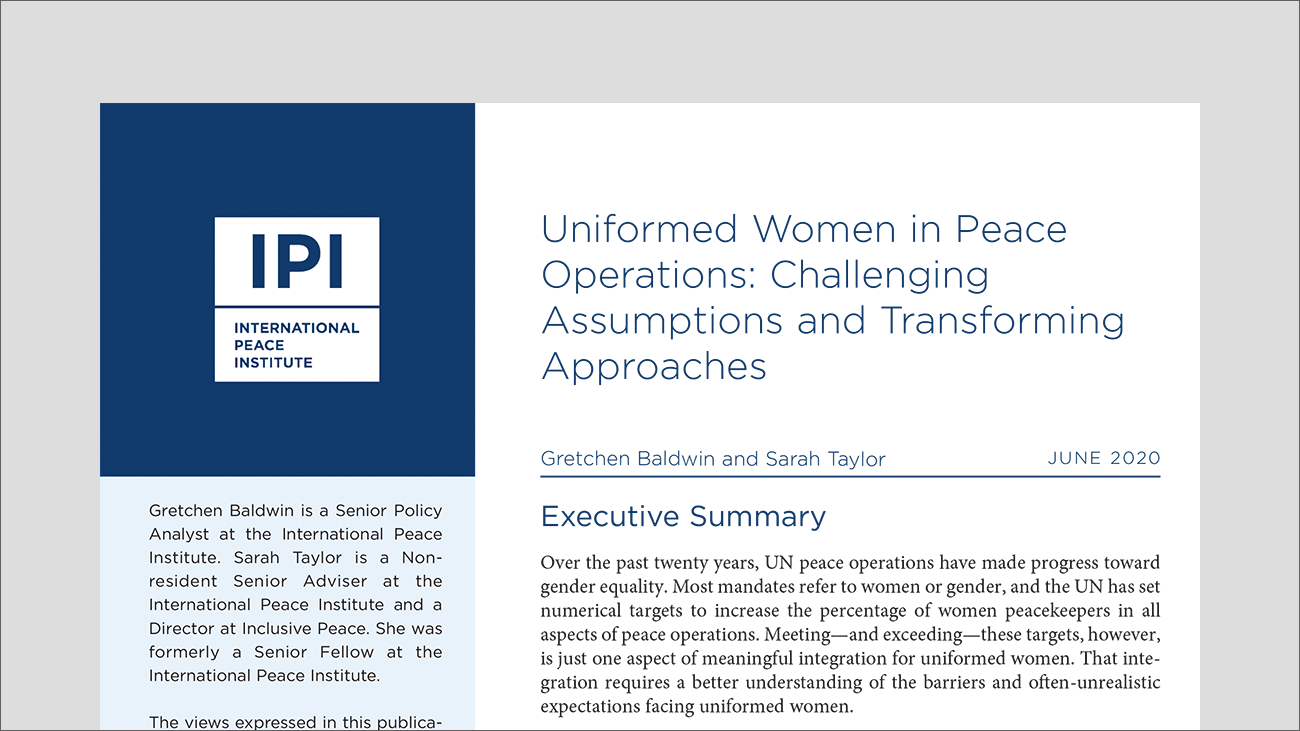
Over the past twenty years, UN peace operations have made progress toward gender equality. Most of their mandates refer to women or gender, and the UN and member states have agreed to numerical targets to increase the percentage of women peacekeepers. Meeting, and exceeding, these targets, however, will require the UN to better understand the barriers and often-unrealistic expectations facing uniformed women.
This paper provides an overview of how the UN and troop- and police-contributing countries are trying to integrate uniformed women into missions and how mission mandates interact with the women, peace, and security agenda. It also expounds upon expectations of uniformed women in peacekeeping operations, specifically regarding the protection of civilians, as well as structural barriers, taboos, and stigmas that affect uniformed women’s deployment experiences. It is the first paper published under the International Peace Institute’s Women in Peace Operations project and provides an overview of research that will be conducted through May 2022.
The paper concludes with initial findings and guidance for researchers and practitioners. It calls for the UN and member states to consider transformative possibilities for increasing women’s participation that push back against existing assumptions and norms. This requires grounding integration strategies in evidence, transforming missions to improve the experiences of women peacekeepers, and implementing a gendered approach to community engagement and protection.







